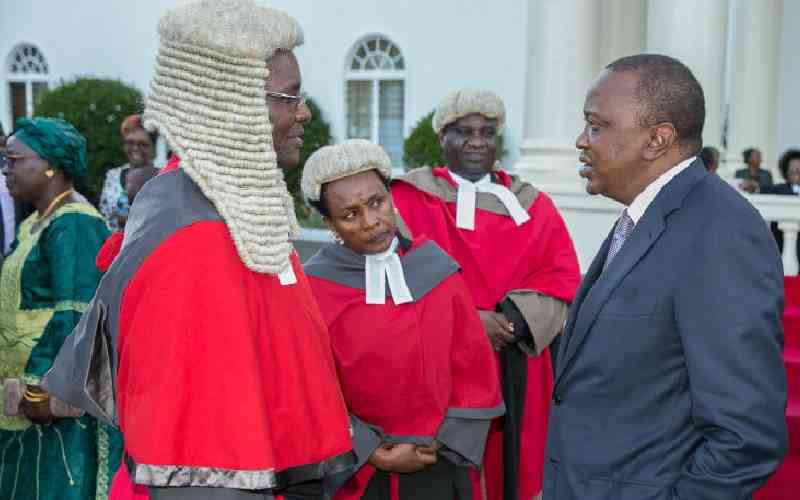×
The Standard e-Paper
Home To Bold Columnists

On the morning of June 8 2020, retired Chief Justice David Maraga took the bold step and declared that President Uhuru Kenyatta was out of order for continued defiance of court orders.
It came as a surprise when Maraga walked out of his office at the Supreme Court, a lonely man with no judge or commissioner from the Judicial Service Commission (JSC) on his side, and took on the president by saying what everyone was whispering in the corridors of justice.